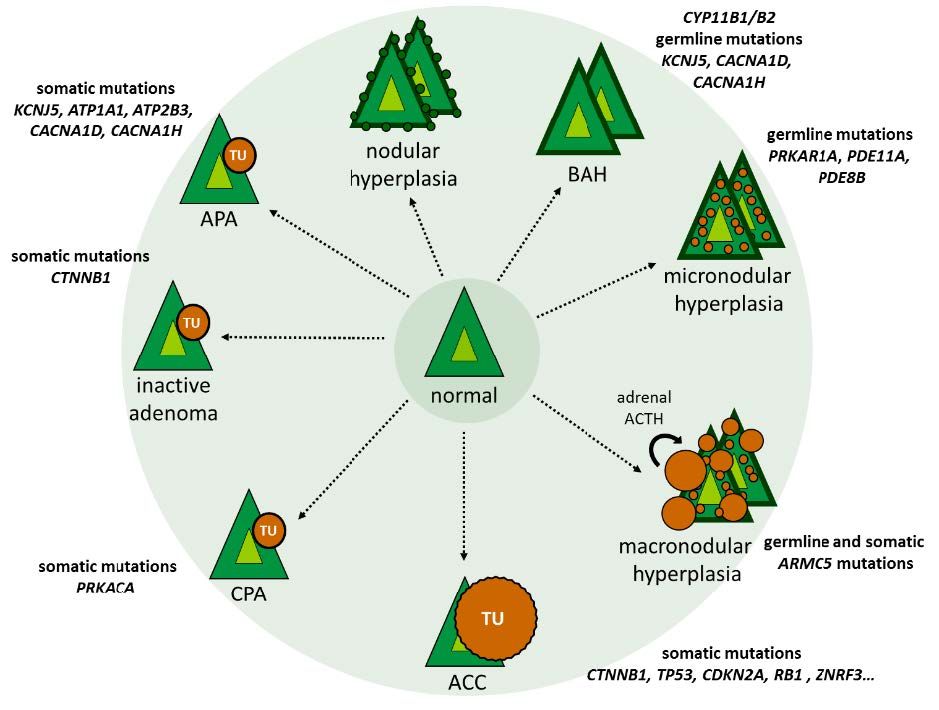Research Group Felix Beuschlein
Keywords
Endocrine Tumors, Adrenal, Pituitary, Neuroendocrine Tumors
Summary & Mission statement
Our groups have a long-term interest in endocrine tumors, especially in those originating from the adrenal and the pituitary gland, which covers all the way from basic to translational science to clinical studies. As many of those tumors are rare, only a strong and well connected center with national reputation will be able to recruit enough resources and patients to engage in internationally visible and competitive research.
Overview
Starting back in 1994 we were engaged in different aspects of adrenal tumorigenesis such as clonality and expression studies in adrenal tumors. Through utilization of a number of genetically modified mouse models we could provide direct evidence for the necessity of Steroidogenic factor 1 (SF-1) for compensatory adrenal growth and interaction of SF-1 and Dax1 for proper adrenal function. In a model of gonadectomy dependent adrenal tumorigenesis we could further demonstrate a crucial role of luteinizing hormone as a modulating growth factor of the adrenal cortex.
Based on molecular and mechanistic evaluation of adrenal tumor development we attempted different therapeutic strategies against adrenal tumors that included immunological approaches using DNA vaccination, pharmacologic, PPARγ dependent pathways or hormonal modulation. Following evidence from murine adrenal tumor models with disruption of genes of the TGFbeta super-family we described a so far unknown role of bone morphogenetic proteins as further modulators of adrenal growth. More recently, we could show in a preclinical model of neuroendocrine and adrenocortical tumors the usefulness of liposomal based therapeutic agents that target and block the IGF1 receptor. Finally, based on our strong international network bounds we have co-authored a number of publications on the genetic basis of adrenocortical and adrenomedullary tumors as well as interventional trials on adrenocortical cancer.

